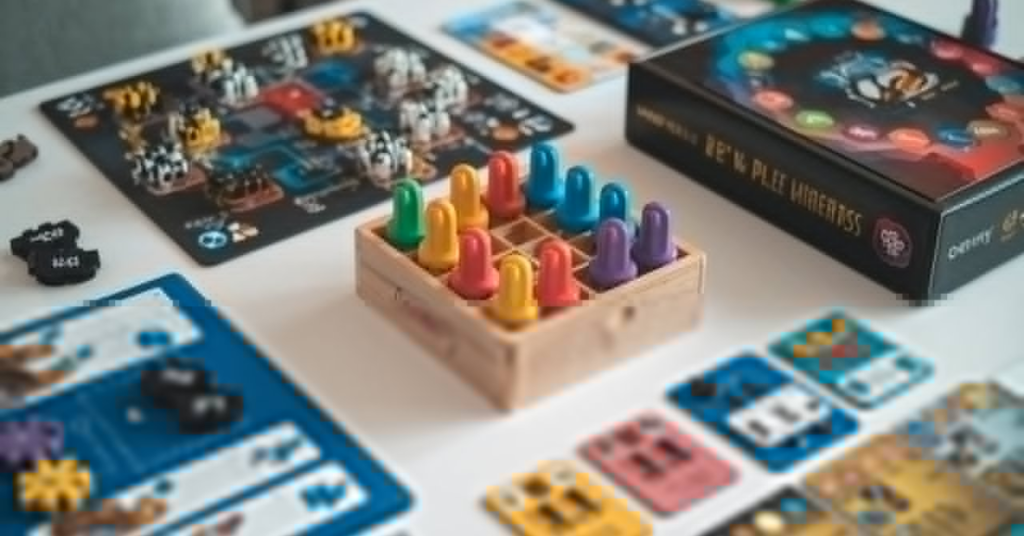Video games are more than just a form of entertainment; they are a powerful medium for storytelling. Some of the best video games have delivered emotional, immersive, and thought-provoking narratives that have left a lasting impact on players. A well-written story in a game can create a strong emotional connection, making the experience unforgettable. This article explores the best story-driven games of all time, highlighting what makes them exceptional and how they have shaped the gaming industry.
Criteria for Selection
Not all video games focus on storytelling, but the ones that do excel in several key areas. The following criteria were considered when selecting the best story games of all time:
- Deep and Engaging Narratives – A compelling plot that keeps players invested.
- Strong Character Development – Well-written characters that evolve throughout the game.
- Player Choices and Their Impact – Games that allow players to influence the story.
- Critical Acclaim and Fan Reception – Recognition from both critics and players.
Each of these factors contributes to making a game’s story truly memorable.
Best Story Games of All Time
Final Fantasy VII (1997)
Final Fantasy VII is widely regarded as one of the greatest RPGs of all time, thanks to its deep and emotional storytelling. The game follows Cloud Strife, a former soldier turned mercenary, who joins the eco-terrorist group AVALANCHE to take down the corrupt Shinra Corporation, which is exploiting the planet’s life force. As the story unfolds, Cloud discovers shocking truths about his past, his identity, and the true threat looming over the world—Sephiroth, one of gaming’s most iconic villains.
What makes Final Fantasy VII a storytelling masterpiece is its well-developed characters, unexpected plot twists, and emotional moments, such as the heartbreaking loss of Aerith. The game’s themes of identity, sacrifice, and the struggle between good and evil resonate deeply with players. Its cinematic presentation, engaging character arcs, and groundbreaking use of 3D graphics and pre-rendered cutscenes set a new standard for narrative-driven RPGs.
The Legend of Zelda: Ocarina of Time (1998)
The Legend of Zelda: Ocarina of Time is one of the most influential action-adventure games ever made, setting a new benchmark for storytelling in video games. The game follows Link, a young hero destined to stop the evil warlord Ganondorf from obtaining the sacred Triforce and plunging Hyrule into darkness. Using the Ocarina of Time, Link must travel between his childhood and adulthood, solving puzzles, exploring dungeons, and forging bonds with memorable characters along the way.
What makes the story of Ocarina of Time so compelling is its use of time travel, deep lore, and emotional weight. Players witness Link’s growth from an innocent boy to a legendary hero, creating a sense of connection with his journey. The game also introduced dynamic world-building, where characters and events changed based on the timeline, making Hyrule feel alive. Its engaging narrative, combined with immersive gameplay and iconic music, solidified it as a classic.
Star Wars: Knights of the Old Republic (2003)
Star Wars: Knights of the Old Republic (KOTOR) is a role-playing game that delivers one of the most captivating stories in the Star Wars universe. Set 4,000 years before the movies, it follows a player-created protagonist who embarks on a journey to stop the Sith Lord Darth Malak. As players progress, they make moral choices that determine whether they follow the light or dark side of the Force, influencing both the story and their relationships with other characters.
What makes KOTOR an exceptional narrative-driven game is its deep character interactions, branching storylines, and shocking plot twist that remains one of the most memorable in gaming history. The ability to shape the protagonist’s destiny through dialogue choices and ethical dilemmas creates a highly personalized experience. With compelling storytelling, rich lore, and immersive world-building, KOTOR became a benchmark for RPG storytelling and set the foundation for future Bioware titles like Mass Effect and Dragon Age.
Half-Life 2 (2004)
Half-Life 2 redefined interactive storytelling by seamlessly integrating narrative elements into gameplay without the use of traditional cutscenes. Players assume the role of Gordon Freeman, a silent protagonist who finds himself in a dystopian future where Earth is under the control of the alien Combine. Through environmental storytelling, scripted events, and in-game character interactions, the narrative unfolds naturally, keeping players engaged in its gripping sci-fi world.
What makes Half-Life 2 stand out is its ability to tell a compelling story without breaking immersion. The game’s advanced physics, realistic character animations, and dynamic world-building contribute to a sense of realism rarely seen in games at the time. Characters like Alyx Vance provide emotional depth, making the resistance against the Combine feel personal and urgent. By allowing players to experience the story through gameplay rather than exposition, Half-Life 2 remains one of the most immersive and innovative story-driven games ever made.
Bioshock (2007)
Bioshock is a narrative-driven first-person shooter that challenges players with deep philosophical questions about power, free will, and morality. Set in the underwater city of Rapture, the game follows Jack, a survivor of a plane crash who stumbles upon this once-thriving utopia, now in ruins due to unchecked scientific ambition and genetic experimentation.
What makes Bioshock a storytelling masterpiece is its use of environmental storytelling, player agency, and moral dilemmas. The city of Rapture itself acts as a character, revealing its history through audio logs, abandoned rooms, and eerie remnants of its past. Players are forced to make difficult choices, such as whether to save or harvest the genetically altered Little Sisters, affecting the game’s ending. Its blend of narrative depth, immersive atmosphere, and philosophical themes makes Bioshock an unforgettable gaming experience.
Modern Storytelling Gems
The Last of Us (2013)
A masterpiece in emotional storytelling, The Last of Us follows Joel and Ellie as they travel across a post-apocalyptic United States. The game explores themes of love, loss, and survival, making players question moral decisions and the lengths one would go to protect a loved one. Its deep character development and cinematic storytelling have set a new standard for narrative-driven games.
The Witcher 3: Wild Hunt (2015)
Based on the novels by Andrzej Sapkowski, The Witcher 3 offers one of the most intricate and engaging stories in gaming. Players control Geralt of Rivia, a monster hunter searching for his adopted daughter. The game’s world is filled with detailed quests, moral dilemmas, and characters with their own motivations, making every decision impactful.
Red Dead Redemption 2 (2018)
A tragic tale of loyalty and redemption, Red Dead Redemption 2 follows Arthur Morgan, an outlaw trying to navigate a changing world. The game’s narrative is full of emotional moments, character depth, and choices that affect the story. The way it immerses players in its world makes it one of the most engaging storytelling experiences in gaming.
Recent Storytelling Achievements
Disco Elysium (2019)
This RPG is unique in that it relies entirely on dialogue and character interactions to tell its story. Players take on the role of a detective solving a murder mystery in a decaying city. The game’s deep philosophical themes, witty writing, and complex characters make it a standout in narrative-driven games.
Cyberpunk 2077: Phantom Liberty (2023)
Despite its rocky launch, Cyberpunk 2077 improved over time, and its Phantom Liberty expansion delivered an intense, spy-thriller narrative. With high stakes, political intrigue, and deep character interactions, this expansion showcases how storytelling in gaming continues to evolve.
Baldur’s Gate 3 (2023)
This RPG, based on Dungeons & Dragons, offers one of the most interactive narratives in gaming. With deep character arcs, meaningful choices, and branching storylines, Baldur’s Gate 3 gives players true freedom in shaping the story, making every playthrough unique.
How Storytelling in Games Has Evolved
Over the years, storytelling in video games has evolved from simple, linear narratives to complex, player-driven experiences. Early games primarily relied on scripted cutscenes and text-based storytelling to deliver their narratives. Players followed a fixed path, with little influence over the outcome. As technology advanced, game developers introduced more interactive storytelling techniques, allowing players to make choices that directly impact the story and character relationships.
Modern games now feature branching storylines, open-world exploration, and dynamic dialogue systems that create a more immersive experience. Titles like The Witcher 3, Red Dead Redemption 2, and Baldur’s Gate 3 give players meaningful choices that shape their journey, making each playthrough unique. The integration of artificial intelligence, procedural storytelling, and real-time decision-making has further blurred the line between player and protagonist. As gaming technology continues to advance, storytelling will become even more interactive and personalized, offering deeper emotional connections and more immersive narratives than ever before.
Conclusion
Story-driven video games have transformed the gaming industry, offering immersive narratives that rival books and movies. These games captivate players through deep character development, emotional storytelling, and interactive choices that shape the experience. Titles like The Last of Us, Red Dead Redemption 2, and Bioshock have set new standards for storytelling, making players emotionally invested in their characters and worlds. Advancements in technology have further enhanced storytelling, with improved graphics, AI-driven narratives, and open-world exploration allowing for more engaging experiences. The rise of branching storylines and player-driven choices has given gamers unprecedented control over their journeys. As the industry evolves, future games will continue pushing the boundaries of storytelling, creating even richer, more dynamic narratives that resonate with players for years to come.


